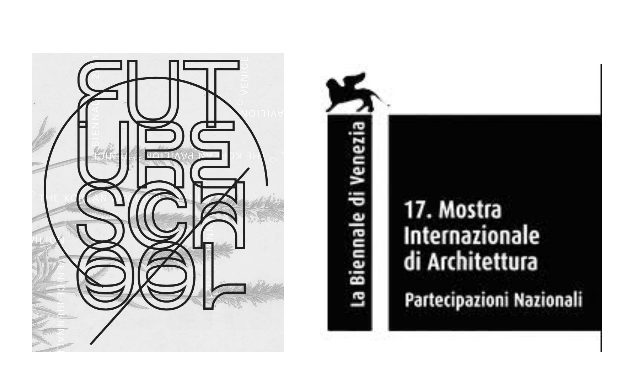I’m thrilled to announce my participation together with Maria Crispal at the next Venice Architecture Biennale with the South Korea pavilion
WHAT IS FUTURE SCHOOL?
Future School converts the Korean Pavilion at the 17th International Architecture Exhibition of La Biennale di Venezia into an international incubator for radical thinking–a meeting place to exchange and encounter ideas and projects that actively explore the notion of building a better future.
A global coalition of people, places, concepts and practices, Future School connects participants and programmes across borders and distance while fostering diverse modes of engagement. The ultimate aim is to forge new and multiple solidarities in the face of current and future challenges, including migration and the growth of the diaspora, the impact of climate change, and the increasing speed of social and technological change.
CAMPUS STRUCTURE
During the 17th International Architecture Exhibition of La Biennale di Venezia, Future School manifests within the Giardini in the form of a physical campus, hosting exhibitions, workshops, installations and conversations. A series of core commissions adds sound and movement, food and drink, and even a Code of Conduct for all participants. This Venice campus connects to other Future School campuses globally and to Future School Online, a new digital environment.
The aspiration to cultivate cross-disciplinary, interactive engagement of all kinds is reflected in the flexible use of the pavilion site–specifically the inclusion of informal domestic spaces that gently but resolutely dissolve the boundaries between learning and living. These include an open kitchen, a circular lounge, and a retreat room constructed entirely in hanji, a traditional, handmade Korean paper.
This is also the driving force behind Future School Online, which is both an archive and an active architecture that facilitates networking information and ongoing collaboration. At a time when travel and close contact are fraught with complication, Future School Online demonstrates how technology can support a globalised, collaborative approach to facing humanity’s most pressing challenges.
PROGRAMMING AND CURRICULUM
Together with contributing architects, educators, artists, theorists and advocates, all visitors are invited to participate in acts of unlearning and relearning through various Future School events running for the duration of the Biennale. Each event is recorded and broadcast within the pavilion as part of an installation that grows and changes over time.
In both its physical and virtual manifestations, Future School offers more than 50 programmes exploring issues that range from cooling urban environments and the futurology of schools to innovative spatial interventions and borders as spaces of integration. This curriculum constitutes the core of Future School’s first academic cycle, which launched in summer 2020 with several preliminary programmes held in Seoul. The design studios, lectures and seminars, discussion panels, exhibits, and other pedagogical interventions taking place during the Biennale Architettura 2021 will then culminate in a final ‘semester’ back in Seoul: a comprehensive exploration of the generated archive that will contribute to the development of yet more innovative programmes both in the Republic of Korea and beyond.
Hae-Won Shin,
Curator of the Korean Pavilion
More info at http://www.korean-pavilion.or.kr/20pavilion/index.html
